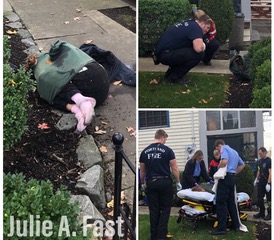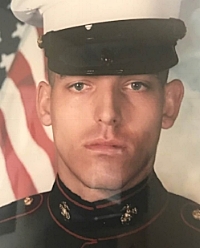There is much confusion around mental health and when someone will ask for help. I often hear this: "He will get help when he is ready," or, "She will finally say yes to meds when she realizes the damage bipolar is doing to her life."
No. This is not how it works with SMI — serious mental illness.
Mental health is not addiction. The idea that a person has to hit rock bottom before they will ask for help is one that might work for alcohol and drug abuse — but it never works for SMI. Here is why:
1. Most people with SMI have a lack of insight (anosognosia) that comes and goes depending on our symptoms. I fight this lack of insight regularly and I'm someone who has enormous insight as compared to others. If I suffer with lack of insight, imagine what it's like for people who haven’t spent the past 20 years on management.
2. Denial is not a part of SMI when a person with SMI is really sick. Denial implies that a person knows what is happening, but chooses to ignore the signs. For example, a person with a severe alcohol dependency might have total knowledge that if he keeps drinking, he is going to ruin his liver, but he keeps drinking despite this knowledge. There is no judgement here, but this is denial. In SMI, a person can have teeth rotting out of their head, long, dirty fingernails, matted hair, and a sleeping bag for a bed and still say, “There is nothing wrong with me. You are the one with the problem.”
There is no rock bottom for us as rock bottom requires self-awareness that is simply not available when we are sick.
Don't expect this from someone with SMI. Those of us with bipolar disorder, schizoaffective disorder, and schizophrenia need people and a society to make decisions for us when we are too sick to ask for help. Without this, our rock bottom is death.
3. The whole idea of individual rights is skewed when it comes to SMI. The idea of rock bottom is based on the idea that individuals are always able to make a choice about life or death situations. I completely, and I do mean completely, disagree with this and believe in society over the individual when it comes to mental health treatment. We are not in our right minds when we are sick. The concept of individual rights doesn't apply to someone who is not in his or her right mind.
If you love someone with SMI, you have tough decisions to make. Waiting until that person sees the light, knows they need help, asks for help, or finally hits rock bottom means you might see the person you love lose everything or die.
Get involved, change HIPAA, think of our society and work with me to get help for people at home and on the streets who are too sick to get help. I hope that people at the ACLU, people in the anti-psych movement, and those who believe in individual rights above society rights can see that the world this creates is not sustainable.
I want society to make decisions for those of us with SMI. I believe in required mental health treatment, anti-psychotic shots, and safe places for people with SMI to live.
We can work together to create long term treatment facilities and homes for people who are ill. They were called asylums for a positive reason — a place of refuge. We need them again. Rock bottom is not dignity. Help us.
The situation in these photos is what led me to write this piece. I was in my car and looked over and saw a man fall and hit his head. He then threw up. No one else stopped and I questioned if I wanted to get involved. Portland, Oregon is completely out of control when it comes to homelessness. The majority on the streets here are seriously mentally ill.
I stopped and helped the man. I knew not to touch him, but I talked to him and said I was calling 911. The dispatcher asked me to see if he was alive and asked me to stay until the paramedics showed up. I found out that his name was Scott and he was 30. He was living on the street. I could see his garbage bag with a CD player and his shoes. As I talked to him, he rolled in a ball under his shirt.
When help arrived, they didn’t look at me, thank me, talk with me, or give me any indication that they needed information from me. They are so used to this that they acted as though someone who looked like he was dying on the street was normal. I’m not judging them. Just observing how truly terrible it is in Portland.
The young man tried to punch and kick the paramedics and they said he had to calm down. He finally did and accepted help. The cost of this one incident will run in the thousands of dollars. The hospital will not be able to do anything due to HIPAA laws and Scott will be released back to the street in a few days. I wouldn’t be surprised if I saw him again today.
I have to cut my emotions off from my work. That is what I did in this situation. I turned off my heart and let my mind do the work that was needed. Someone had to help and this time it was me.
Note: Julie is a writer at BP Magazine for Bipolar and a blogger at Psychology Today.




